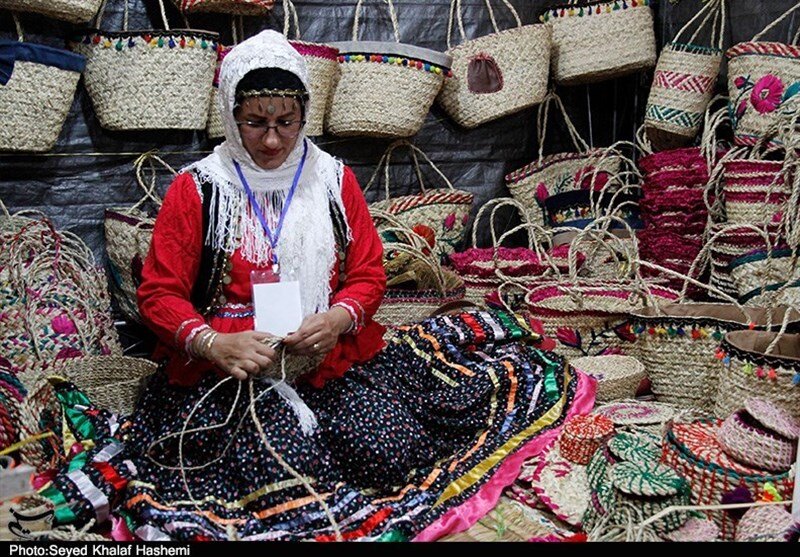Female breadwinner crafters to receive support

TEHRAN- The Ministry of Cultural Heritage, Tourism, and Handicrafts and Keramat Razavi charity foundation have signed an agreement to support women heads of households who are active in the field of handicraft, especially during the coronavirus pandemic.
The ministry has secured an agreement with the Keramat Razavi Foundation to cater to low-interest loans, grants, domestic markets, and online sales to craftswoman in particular breadwinner ones.
A memorandum of understanding was inked in this regard by the deputy tourism minister Pouya Mahmoudian and the CEO of Keramat Razavi Foundation Mohammad Hossein Ostadaqa on Saturday.
According to deputy tourism minister Pouya Mahmoudian, establishing handicraft markets will be one of the most important measures to create sustainable jobs for artisans. “In this line, an online exhibition of handicrafts will be held in which all artisans from across the country can offer their products without the need to pay any fees.”
The first phase of the plan will address women-headed households, whose jobs have been affected by the coronavirus pandemic in the eight provinces of Khorasan Razavi, South Khorasan, North Khorasan, Kordestan, Sistan-Baluchestan, Khuzestan, Lorestan, and Golestan, CHTN reported.
It aims to create and maintain jobs for 1,500 people through allocating 80 billion rials (some $1.9 million) to around 400 women breadwinners, the report added.
Back in May, Mahmoudian noted that due to the outbreak of coronavirus, suitcase exports of handicrafts were completely stopped since the month of Esfand (the last month of the year), and official exports of handicrafts experienced a steep decline.
“Some 295 fields of handicrafts are currently practiced across Iran with more than two million people engaging, majority of whom are women… Handicrafts also play an important role in the economy in our rural villages,” she said.
In Iran, there are 3 million women-headed households, out of a total of 22 million families, and most of them can be found in less developed areas of the country.
The country exported $523 million worth of handicrafts during the past calendar year 1398 (ended March 19). Of the figure, some $273 million worth of handicrafts were exported officially through customs, and about $250 million was earned via suitcase trade (allowed for customs-free and tax-free transfer) through various provinces, according to data provided by the Ministry of Cultural Heritage, Tourism and Handicrafts.
Support package approved for corona-affected tourism businesses
The National Headquarters for Coronavirus Control has recently approved a new support package to pay loans to businesses affected by the coronavirus pandemic.
Depending on the type and activity of the businesses, they could benefit from at least 160 million rials ($3,800 at the official rate of 42,000 rials) to nine billion rials ($214,000) of bank loans with a 12-percent interest rate, deputy tourism chief Vali Teymouri announced on late in October.
The loans are planned to be allocated to tourist guides, travel agencies, tourism transport companies, tourism educational institutions, eco-lodges and traditional accommodations, hotels, apartment hotels, motels, and guesthouses as well as traditional accommodation centers, tourism complexes, and recreational centers.
In September, Teymouri pointed to the 1.3 million tourism workers in the country, who are facing several issues due to the coronavirus crisis and said “This number, in addition to their households, includes a significant population that makes a living through tourism, who are needed to be considered in ministry’s decisions.”
Back in April, the government announced it will support those which are grappling with fiscal problems by offering loans with a 12-percent interest rate. The Ministry of Cultural Heritage, Tourism and Handicrafts also suggested a rescue package for tourism businesses. The government has also allocated a 750-trillion-rial (about $18 billion) package to help low-income households and small- and medium-sized enterprises suffered by the coronavirus concerns.
ABU/AFM/MG
